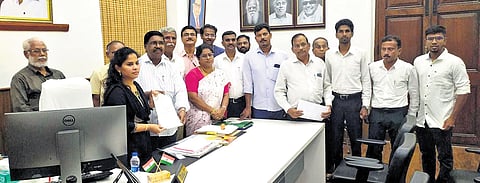

CHENNAI: The Federation of North Chennai Residents Welfare Association (FNCRWA) submitted a petition to Greater Chennai Corporation (GCC) Mayor R Priya on Friday demanding the withdrawal of the proposed Waste-to-Energy (WTE) plant in Kodungaiyur. FNCRWA noted that Kerala’s model of decentralised waste management offers a safer alternative and urged GCC to move towards zero-waste initiatives instead of WTE plants.
The association has instead proposed an ecological park, research libraries, and other public infrastructure on 350 acres, which includes the 75-acre site proposed for WTE plant and 275 acres of Kodungaiyur dumpyard to be reclaimed through biomining.
The petition follows a human chain protest held by FNCRWA on May 25. In response to the protest, the GCC assured that the WTE plant would only proceed after public consultation and environmental clearance, claiming it would adopt scientific methods to avoid groundwater infiltration. However, it is also cited that WTE plants in India, including in Delhi, Hyderabad, and Pimpri Chinchwad, are running successfully.
While the petition acknowledged GCC’s assurance on monitoring, it stated that similar promises were made elsewhere, only to be broken after operations. Plants in Delhi, Hyderabad, and Pimpri-Chinchwad have proven to be bitter lessons. FNCRWA pointed to an NGT report that highlighted leachate from the Jawahar Nagar WTE plant contaminating 18 lakes in Hyderabad and polluting the groundwater.
Quoting CSIR-NEERI findings, the petition warned of cancer risks from incinerator emissions. They also criticised comparisons to Tokyo and Paris, noting that North Chennai’s population density is four times that of Tokyo, and the area is already burdened with industrial pollution.
They also highlighted that the proposed site for WTE is a wetland and vital flood catchment zone, home to 54 bird species, making it unsuitable for a WTE plant under environmental law. “We seek development, not destruction,” the petition read. “We are not against development projects by the GCC, but projects that destroy natural resources and public health should not be implemented,” it added.